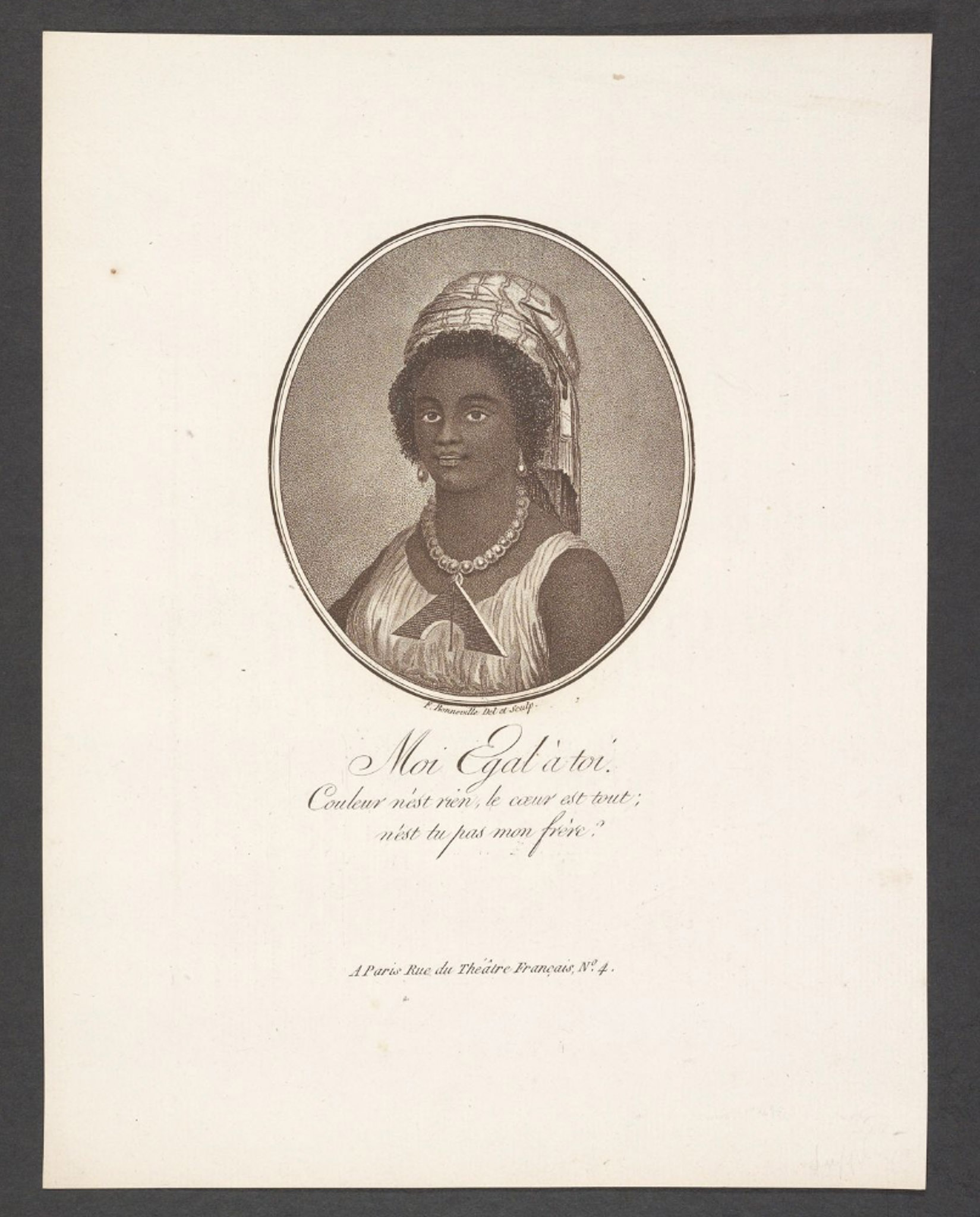The print "Moi égal à toi" is undated but it may have been issued by François Bonneville on the occasion of the National Convention's 4 February 1794 decree abolishing slavery in all French colonies. A prior decree from 1791 on the abolition of slavery had been applicable only to France but not to its colonies; that year a slave revolt broke out in the French colony Saint-Domingue on the Caribbean island of Hispaniola, in what is now Haiti.
The print follows the format of portrait prints usually adopted by François Bonneville, namely a bust within a small oval medallion. The Black woman wears a Caribbean headwrap, which viewers could have associated with the Phrygian liberty cap of emancipated enslaved people. Attached to her pearl necklace is a carpenter's level. She is shown within a triangular composition, her head high, commanding respect, exuding calm. The caption "Moi égal à toi" asserts her equality to that of the viewers in Paris, and further references notions of fraternity prominent during the French Revolution.
This hopeful declaration of equality among all women and men within a French context would be short lived, as slavery would subsequently be reinstated in its colonies during the reign of Napoleon I.
Moi Egal à toi. Couleur n'est rien, le cœur est tout. N'est tu pas mon frère?
